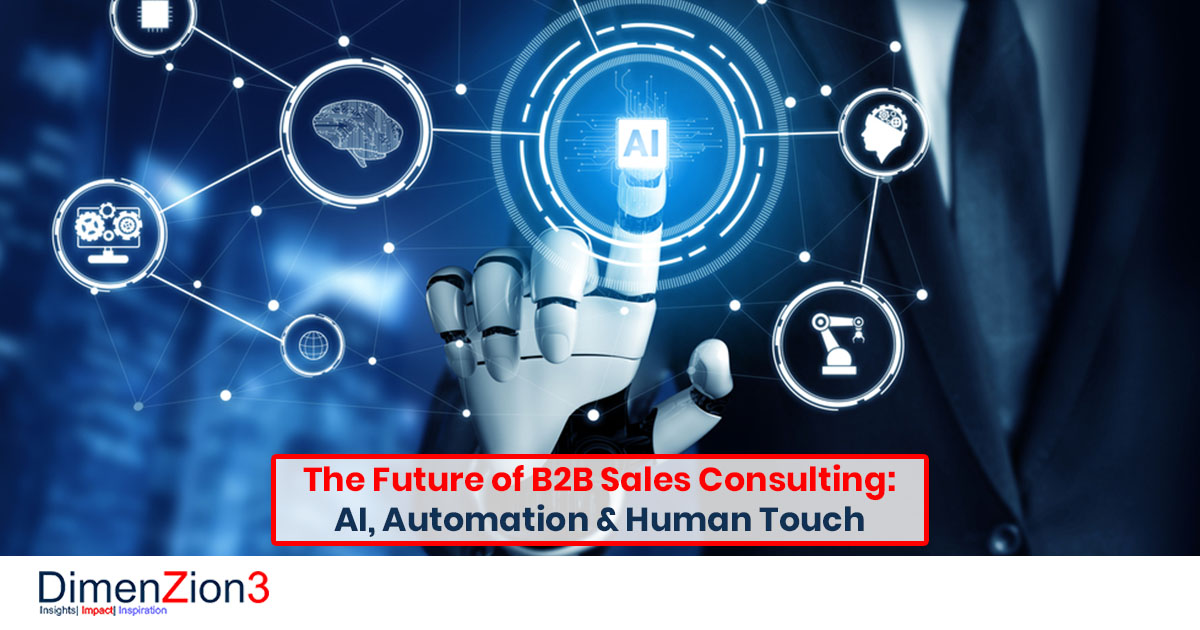The Future of B2B: Harnessing AI Automation to Drive Success
The landscape of B2B is changing as business progressively turn to AI automation for critical benefit. This change promises to improve effectiveness and client interaction through innovative modern technologies. The integration of these devices is not without its difficulties. Understanding just how services can navigate this advancing terrain will certainly be necessary for future success. What aspects will determine the performance of AI in this industry? The solutions may redefine traditional service models.
Recognizing AI Automation in B2B
As companies significantly seek performance, comprehending AI automation in B2B comes to be vital. AI Automation For B2B. AI automation describes using fabricated intelligence modern technologies to improve and boost business processes. In the B2B field, this involves the combination of AI devices to manage tasks such as information analysis, client communications, and supply chain procedures. By leveraging device discovering and all-natural language processing, business can boost precision, decrease human error, and quicken decision-making. AI automation assists in the handling of huge quantities of information, enabling companies to draw out useful understandings and maximize their procedures. As companies browse this technical landscape, an extensive understanding of AI automation's abilities will equip them to stay responsive and competitive to market needs
Key Advantages of AI Automation for Businesses
While many companies grapple with enhancing operational demands, AI automation presents numerous advantages that can markedly enhance their efficiency. One substantial benefit is performance; AI systems can do repeated tasks faster and with greater precision than human beings, consequently freeing and reducing mistakes up workers for more tactical initiatives. Furthermore, AI automation enables data-driven decision-making by assessing huge datasets quickly, providing understandings that notify company techniques. Cost decrease is one more key advantage, as automation lessens labor costs and maximizes source allotment. AI can improve scalability, permitting services to adapt to market adjustments quickly. Inevitably, the combination of AI automation fosters technology, enabling firms to stay affordable in a rapidly advancing landscape.
Transforming Consumer Experiences With AI
AI is reshaping consumer experiences by enabling tailored interactions and improving involvement. Through the application of anticipating analytics, companies can prepare for consumer demands and preferences, causing more tailored solutions. Additionally, improving assistance procedures with AI technology enhances performance and complete satisfaction, eventually changing the overall customer journey.
Individualized Communications and Engagement

Predictive Analytics Execution
As organizations progressively seek to enhance consumer experiences, applying predictive analytics has become an essential method in the B2B industry. By leveraging data-driven understandings, companies can anticipate customer demands and preferences, allowing them to customize their offerings much more effectively. Anticipating analytics uses historic information and innovative algorithms to anticipate future habits, allowing organizations to determine potential obstacles and opportunities. This aggressive technique not only boosts client satisfaction however also cultivates loyalty by supplying timely and appropriate remedies. Furthermore, anticipating analytics assists in source allocation, making certain that marketing initiatives are focused on high-value potential customers. Inevitably, the integration of anticipating analytics outfits B2B business with the devices necessary to transform client communications and drive long-term success in a progressively affordable landscape.
Improving Support Procedures
Enhancing consumer experiences in the B2B industry prolongs past anticipating analytics; streamlining support procedures plays an important function. By incorporating AI-driven services, companies can automate regular inquiries and improve feedback times, leading to increased client fulfillment. Chatbots and digital aides provide 24/7 support, dealing with client needs immediately and lowering the worry on human representatives. This automation allows groups to focus on complex issues, fostering more meaningful interactions. Furthermore, AI tools can evaluate support data to identify trends and locations for renovation, ensuring constant enhancement of service quality. Minarik AI. As organizations embrace these modern technologies, they position themselves as responsive and customer-centric, inevitably driving loyalty and company development in a significantly competitive landscape
Improving Procedures and Processes
Enhancing procedures and procedures in B2B settings is essential for improving general effectiveness. By enhancing process effectiveness and automating regular jobs, companies can minimize hands-on errors and complimentary up useful sources. This shift not only improves productivity but also enables groups to concentrate on critical efforts that drive growth.
Enhancing Workflow Effectiveness
Maximizing operations performance is necessary for organizations looking for to minimize operational costs and boost efficiency. By evaluating existing processes, companies can determine bottlenecks and redundancies that hinder efficiency. Executing streamlined treatments improves communication and cooperation among teams, making certain that tasks are completed extra quickly. Utilizing data-driven understandings allows firms to make educated decisions that improve operations better. In addition, embracing integrated modern technologies can assist in seamless info circulation, lessening the risk of errors and delays. As organizations embrace these changes, they not just cultivate an extra dexterous workplace but additionally position themselves to respond promptly to market demands. Inevitably, focusing on process efficiency enables companies to assign sources effectively, driving lasting success in an increasingly competitive landscape.
Automating Regular Tasks
Numerous companies are increasingly turning to automation to manage regular tasks, acknowledging its possible to greatly improve functional performance. By deploying AI-driven options, firms can streamline repetitive activities such as information access, billing processing, and client questions. This shift not only decreases human mistake but also liberates valuable worker time, allowing staff to focus on calculated campaigns and value-added jobs. Additionally, automation can improve reaction times and service consistency, causing boosted consumer satisfaction. As businesses navigate a competitive landscape, leveraging automation for routine jobs comes to be essential for maintaining and optimizing workflows dexterity. Inevitably, this strategy cultivates technology and drives development, placing organizations for long-term success in the advancing B2B atmosphere.
Enhancing Decision-Making With Information Insights
As services navigate a progressively complex landscape, leveraging information understandings becomes essential for informed decision-making. Minarik AI. By using innovative analytics and AI-driven tools, companies can transform raw data into workable knowledge. This allows them to identify trends, forecast market modifications, and maximize strategies based on real-time info. Improved decision-making procedures rely upon information visualization methods, permitting stakeholders to conveniently interpret complex datasets and make swift, evidence-based options. In addition, understandings stemmed from consumer actions and market characteristics empower companies to tailor their offerings, improving customer complete satisfaction and driving growth. Eventually, taking advantage of information insights not only improves decision-making effectiveness but also positions companies to remain competitive in a rapidly evolving market
Getting Rid Of Difficulties in AI Application
AI execution holds the assurance of considerable operational improvements, companies commonly deal with a myriad of challenges that can prevent progression. Secret obstacles consist of data quality concerns, as lots of enterprises battle with insufficient or inconsistent datasets necessary for reliable AI training. Furthermore, resistance to change within the labor force can impede the fostering of AI innovations, as staff members might fear work displacement or do not have the required abilities. Budget plan constraints likewise present an obstacle, limiting financial investment in the required framework and talent. In addition, integrating AI systems with existing procedures can be complex, requiring significant time and sources. Overcoming these difficulties demands a tactical strategy that includes detailed training, change administration, and a dedication to continuous enhancement in AI campaigns
Future Trends: The Next Frontier in B2B Automation
While the landscape of B2B automation remains to evolve, emerging patterns find out here are positioned to redefine how organizations operate. The assimilation of advanced synthetic knowledge will certainly facilitate much more individualized consumer experiences, allowing companies to tailor options specifically to customer needs. The increase of anticipating analytics will certainly make it possible for companies to prepare for market changes and maximize decision-making procedures. Automation of regular jobs through robot procedure automation (RPA) will certainly boost efficiency, reducing operational costs considerably. Additionally, the adoption of blockchain technology promises boosted openness and security in transactions. As these developments gain traction, companies will increasingly utilize AI-driven understandings to cultivate partnership, enhance supply chains, and enhance overall productivity, noting a transformative change in the B2B landscape.
Often Asked Concerns
What Sorts Of Companies Can Benefit Many From AI Automation?

Just How Can Local Business Implement AI Automation Properly?
Local business can execute AI automation effectively by recognizing repeated tasks, picking easy to use tools, making certain appropriate training for workers, and gradually incorporating services to maximize process while keeping track of efficiency and changing strategies based upon feedback.
What Prevail False Impressions Regarding AI in B2B?
Usual mistaken beliefs about AI in B2B consist of the belief that it is just for large ventures, that it guarantees instantaneous results, which it can fully change human decision-making rather than boosting it.
How Does AI Automation Effect Employee Duties and Work Safety And Security?
AI automation reshapes worker roles by simplifying repetitive jobs, cultivating effectiveness and technology. While some fear task loss, it often produces possibilities for upskilling and new settings, eventually boosting job safety via added value and efficiency.
What Abilities Are Required to Manage AI Automation Projects?
To handle AI automation jobs, people require strong analytical skills, job monitoring competence, effectiveness in information analysis, understanding of device discovering principles, reliable interaction abilities, and adaptability to quickly altering technical settings. These skills guarantee successful implementation.
As services significantly seek performance, comprehending AI automation in B2B ends up being crucial. AI automation facilitates the handling of large volumes of data, enabling businesses to extract valuable insights and maximize their procedures. While several organizations grapple with raising functional needs, AI automation offers numerous advantages that can markedly enhance their efficiency. Automation of regular tasks with robotic procedure automation (RPA) will certainly improve effectiveness, decreasing operational prices substantially - Minarik AI. Production, logistics, and customer service organizations can profit most from AI automation